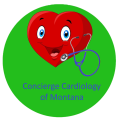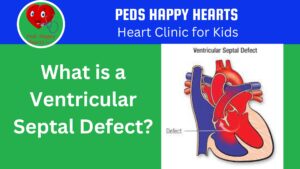Ventricular septal defects (VSDs) is a congenital heart defect that affects the heart’s structure. It is a condition where there is a hole in the wall that separates the heart’s two lower chambers, the left and right ventricles. The hole can vary in size, and the severity of the condition depends on the size and location of the hole.
Symptoms of VSDs:
The symptoms of VSDs can vary depending on the size of the hole and the age of the patient. In newborns, the symptoms may include rapid breathing, poor feeding, and a bluish tint to the skin, known as cyanosis. In older children and adults, the symptoms may include shortness of breath, fatigue, and an increased risk of developing lung or heart infections.
How to Diagnose VSDs?
Diagnosing VSDs typically involves a physical exam, an electrocardiogram (ECG), and an echocardiogram (an ultrasound of the heart).
Treatment Options for Ventricular Septal Defects:
Treatment for ventricular septal defects may include medications to manage symptoms, such as diuretics to reduce fluid buildup in the lungs, or surgical repair to close the hole in the heart.
There are several surgical techniques available to treat VSD, including open-heart surgery and minimally invasive procedures. In open-heart surgery, the patient is placed on a heart-lung bypass machine while the surgeon repairs the hole. In minimally invasive procedures, small incisions are made in the chest, and the surgeon uses specialized tools to repair the hole.
Prognosis:
The outlook for patients with VSD depends on the size and location of the hole, as well as the patient’s age and overall health. With proper treatment and management, many patients with VSD can live normal, healthy lives. However, untreated VSD can lead to serious complications, including heart failure, stroke, and pulmonary hypertension.
In conclusion, ventricular septal defect is a congenital heart defect that can affect patients of all ages. It is important to seek medical attention if you or a loved one is experiencing symptoms of VSD. Many patients can live normal, healthy lives with proper diagnosis and treatment.
To schedule a consultation, contact our office at 406-272-2376.


